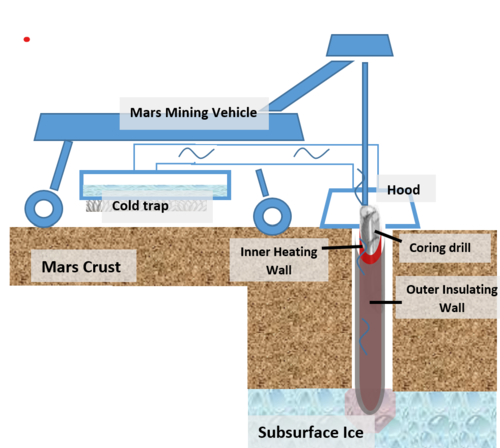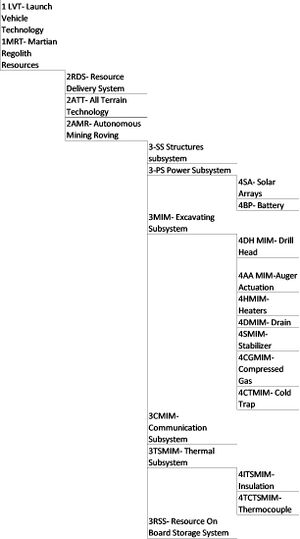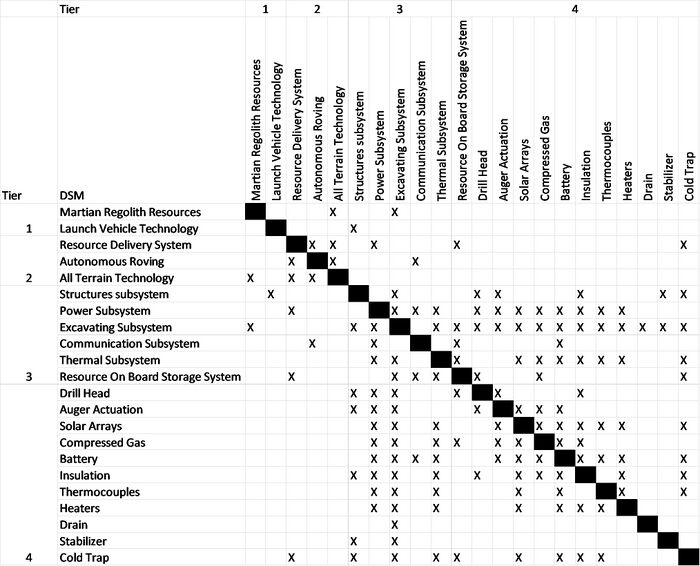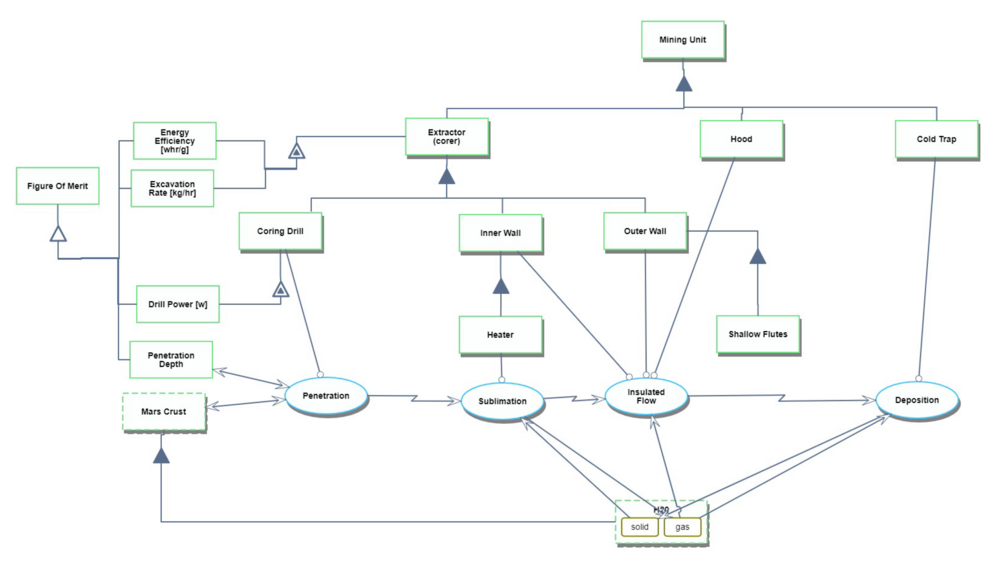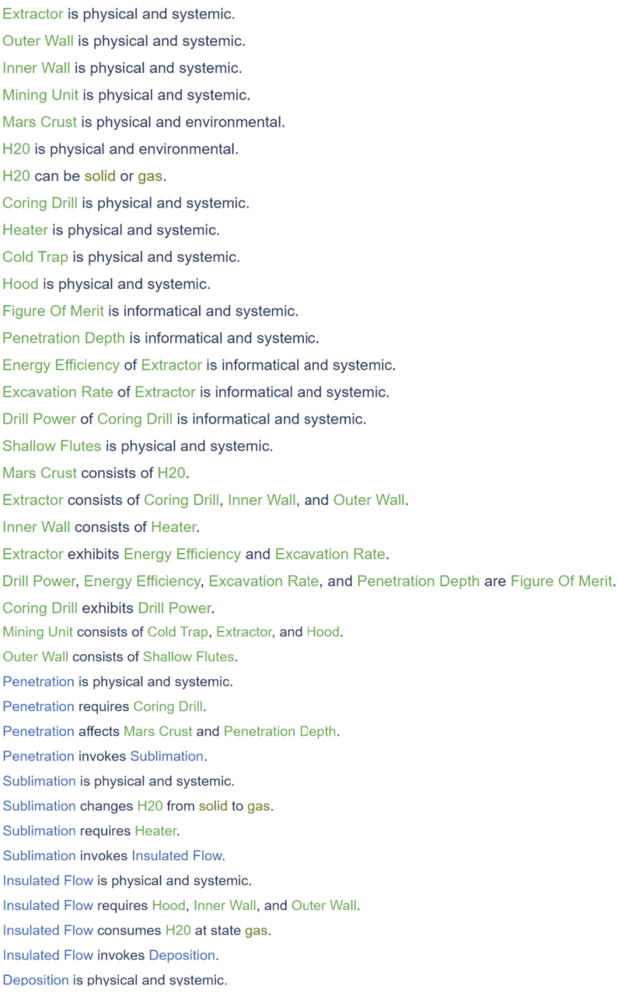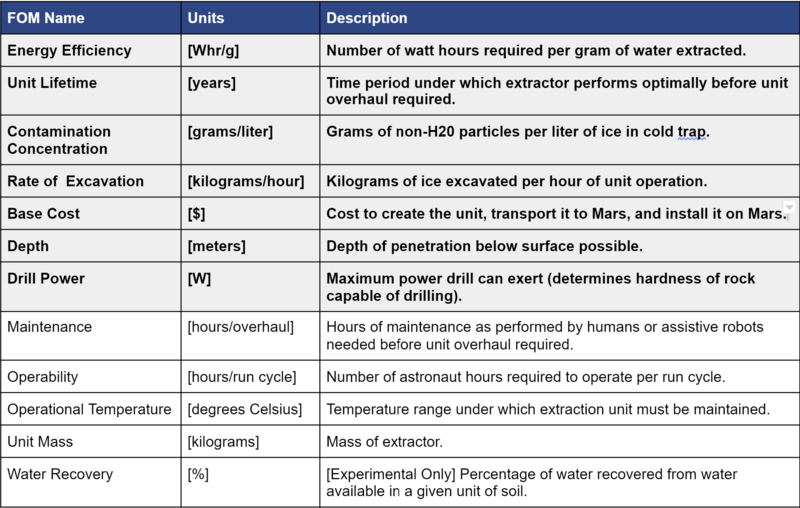Mining the Martian Surface for in Situ Resources
Martian Ice Extraction Technology Roadmap
The technology roadmap identifier:
- 3MIM - Mars In Situ Mining
The number 3 denotes that this roadmap refers to a level 3. For this technology, Level 1 refers to the technology system required to mine, alter, and create resources on Mars, including various types of mining and electrolysis. The system for autonomous mining is a Level 2, and the sub-system (Level 3) of excavation is defined in this roadmap. A level 4 technology would consist of a sub-component of the excavation process, such as drill bits and power generation.
Roadmap Overview
Vital resources to construct habitats and sustain life on Mars are required in order for humans to visit and maintain on the "Red Planet". The current state of technology requires that all resources for human survival on Mars must be brought with astronauts or sent from Earth prior to the crew's arrival. There are limitations in the cost of sending cargo and mass-launch capabilities of current propulsion. One way to solve this discrepancy is to send and technology and machinery to Mars with the intent that it will be able to gather the vital resources in situ prior to the next launch window and human arrival. This roadmap focuses on the autonomous mining excavating technologies required to accrue water on Mars.
The Mars water extraction technology would fall under the matter transporting category of the functional taxonomy. We model our extraction technology on the extraction architecture deemed the most successful by Honey Bee Robotics’ most recent experiments on Planetary Volatile Extraction (PVEx). The extraction technology they deemed the most efficient approach in terms of both water extraction and energy consumption is referred to as the “corer” and takes the form of a dual wall coring auger.
Figure 1 - Mars Mining Vehicle Corer Extraction Technology
Figure 1 was created by our team in order to graphically demonstrate the corer technology. The inner wall is composed of heaters, while the outer wall is composed of a composite, insulating material. Once the inner coring drill breaks through the crust and reaches ice, the inner wall begins to heat. Ice sublimation occurs, and the evaporated gas travels between the heated inner wall and insulated outer wall through a surface hood to the cold trap. Deposition occurs in the cold trap, turning the gas back into an ice form.
Technology Hierarchy Tree
The below technology hierarchy tree shows the break down of technology starting at L1 Technology (Mars Mining) and moving to L2 Technology (Autonomous Mars Mining). Our technology roadmap examines a L3 Technology (Mars Mining Ice Extraction), which serves as an integral component of Autonomous Mars Mining. Our selected technology can be further broken down into L4 Technologies, such as the coring drill, the inner wall, and the outer wall.
DSM Allocation
Roadmap Model using Object-Process-Methodology (OPM)
We created an Object-Process-Diagram (OPD) of the Mars Mining Extraction Technology below in Figure 4. The diagram serves to capture the main object of the roadmap, the corer, its decomposition into sub-components (coring drill, inner wall, outer wall), its characterization by Figures of Merit (FOMs) and the main processes of the system (Drilling, Heating, etc.).
Figure 4 - Ice Extraction OPD
An Object-Process-Language (OPL) description of the above OPD provides a lingual breakdown of the OPD. The OPL is automatically-generated.
Figure 5 - Ice Extraction OPL
Figures of Merit (FOM) Definition
The table below shows a list of figures of merit by which a water extraction technology on Mars could be assessed. As a team we focused heavily on the bolded figures of merit in the table, and included a majority of them in the OPD.
Figure 6 - Ice Extraction Figures of Merit
